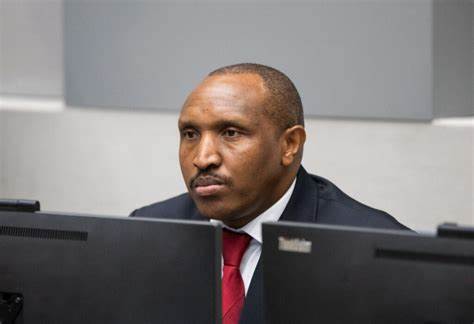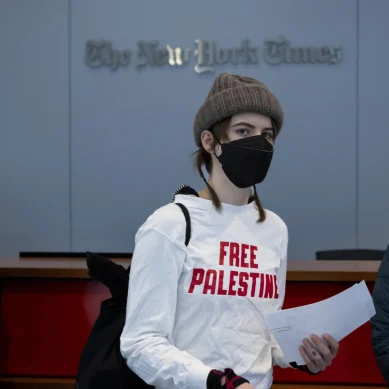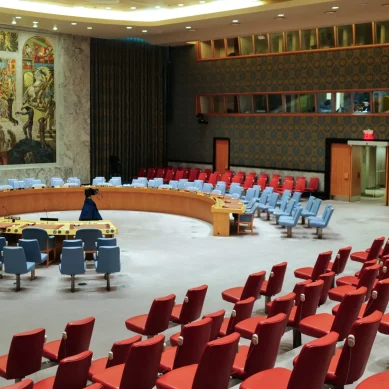
The Appeals Chamber of the International Criminal Court has upheld the decision by Trial Chamber VI of July 8, 2019 found Bosco Ntaganda guilty of 18 counts of war crimes and crimes against humanity.
Consequently, Mr Ntaganda will serve 30 years imprisonment as had been decided by the Trial Chamber on November 7, 2019. In arriving at the verdict, the Appeals Chamber unanimously confirmed the Trial Chamber’s decision that committed Ntaganda to imprisonment for crimes against humanity.
The conviction and the sentence are now final. The crimes were committed in Ituri province of the Democratic Republic of the Congo (DRC) between 2002 and2003.
Ntaganda and the prosecutor had appealed the verdict, while Ntaganda on his own appealed the sentencing judgment. In in the March 30 hearing, Judge Howard Morrison, who was the presiding Judge in the appeals, read the summary of the judgments in open court in the presence of Ntaganda.
Owing to the Covid-19 restrictions the judgment was delivered on a partially virtual basis with participation either from the seat of the court or from separate locations outside the court.
The Appeals Chamber found that Ntaganda did not demonstrate that his right to a fair trial was violated. It also determined that, in convicting him the Trial Chamber did not exceed the facts and circumstances described in the charges.
The Appeals Chamber also rejected his challenge against the Trial Chamber’s finding that the crimes for which he was found to be criminally responsible were part of an attack directed against a civilian population pursuant to, or in furtherance of, an organisational policy.
It further rejected his challenge to the Trial Chamber’s findings on indirect co-perpetration.
The Appeals Chamber also found that the Trial Chamber provided a reasonable assessment of the evidence regarding Ntaganda’s knowledge and intent of the crimes of rape and sexual enslavement of individuals under the age of 15. The Appeals Chamber also upheld the verdict that he had knowledge of the recruitment, conscription and use of individuals under the age of 15 in hostilities and in relation to the remaining crimes.
The Appeals Chamber declined to accept the prosecutor’s grounds of appeal on the interpretation of the term “attack” in article 8(2)(e)(iv) of the Rome Statute.
In relation to the appeal against the sentence imposed, the Appeals Chamber threw out Ntaganda’s challenge to the Trial Chamber’s assessment of his degree of participation in and knowledge of the crimes, including the crime of sexual enslavement and rape of civilians.
Likewise, Ntaganda’s challenges to the Trial Chamber’s assessment of alleged aggravating circumstances (related to the crime of intentionally directing attacks against civilians) and mitigating circumstances (including the suffering and discrimination that he had endured as a result of his experience in the Rwandan genocide) were also rejected.
Notably, with regard to the latter, the Appeals Chamber noted that Ntaganda’s personal experience in the Rwandan genocide could not diminish his culpability given his criminal conduct and the gravity of the crimes for which he was convicted.
The Appeals Chamber in these appeals was composed of Presiding Judge Howard Morrison, Judge Piotr Hofmański, Judge Luz del Carmen Ibáñez Carranza, Judge Solomy Balungi Bossa and Judge Chile Eboe-Osuji.
Separate opinions were appended to the Appeals Chamber’s Judgments. In their opinions, Judges Hofmański, Morrison, Eboe-Osuji and Bossa discuss the meaning of “attack” in article 8(2)(e)(iv) of the Statute.
In his opinion, Judge Morrison discussed indirect co-perpetration, while Judge Ibáñez examined the contextual elements of crimes against humanity, in particular, the requirement of a state or organisational policy to commit a widespread or systematic attack against any civilian population.
The judge also discussed indirect co-perpetration as a mode of liability enshrined in article 25(3)(a) of the Statute.
Judge Eboe-Osuji looked into the use of prior recorded statements, indirect co-perpetration and the legal interpretation of a state or organisational policy to commit an attack directed against any civilian population.
- A Tell report











